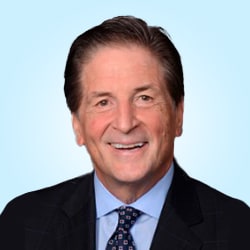- Lawyers Assistance Programs
- The free services that Lawyers Assistance Programs provide to lawyers, judges, their family members, and law students
- The Warning Signs of Impairment & Wellness Strategies for Lawyers and Judges
- The early warning signs of impairment, with special emphasis on stress, anxiety, and trauma
- What is hyperconnectivity?
- The mental health impact of technology in the post-COVID-19 world
- Warning signs of digital device addiction
- Setting boundaries, managing apps, unfollowing the unhealthy, intentionally overcoming biases, and scheduling self-care time
- Barriers to Seeking Help
- A close look at what barriers exist that prevent lawyers and judges from seeking the help they need
- The role that education plays in breaking the stigma and fear associated with addiction and mental illness in the legal profession
- Questions & Answers
This webinar is divided into section summaries, which you can scan for key points and then dive into the sections that interest you the most.
Please note this AI-generated summary provides a general overview of the webinar but may not capture all details, nuances, or the exact words of the speaker. For complete accuracy, please refer to the original webinar recording.

Lawyers Concerned for Lawyers of Pennsylvania
Brian S. Quinn, Esquire is a licensed attorney in Pennsylvania who currently serves as the Education and Outreach Coordinator for Lawyers Concerned for Lawyers of Pennsylvania, Inc., a Lawyers Assistance Program established in 1988 for the purpose of helping lawyers, judges and law students recover from alcoholism, drug addiction and mental health disorders. Read More ›
*CLE credit is only available to Justia Connect Pros. Not a Pro? Upgrade today>>
Status: Approved
Credits: 1.00 Wellness Competence
Earn Credit Until: June 30, 2026
Status: Approved
Credits: 1.00 Professional Well-Being
Earn Credit Until: February 28, 2026
Status: Approved
Credits: 1.00 Legal Ethics/Professional Responsibility
Earn Credit Until: January 31, 2026
This presentation is approved for one hour of Wellness Competence CLE credit in California, and one hour of Professional Well-Being CLE credit in North Carolina. This course has been approved for Minimum Continuing Legal Education credit by the State Bar of Texas Committee on MCLE in the amount of 1.00 credit hours, of which 1.00 credit hours will apply to Legal Ethics/Professional Responsibility credit.
Justia only reports attendance in jurisdictions in which a particular Justia CLE Webinar is officially accredited. Lawyers may need to self-submit their certificates for CLE credit in jurisdictions not listed above.
Note that CLE credit, including partial credit, cannot be earned outside of the relevant accreditation period. To earn credit for a course, a lawyer must watch the entire course within the relevant accreditation period. Lawyers who have viewed a presentation multiple times may not be able to claim credit in their jurisdiction more than once. Justia reserves the right, at its discretion, to grant an attendee partial or no credit, in accordance with viewing duration and other methods of verifying course completion.
At this time, Justia only offers CLE courses officially accredited in certain states. Lawyers may generate a generic attendance certificate to self-submit credit in their own jurisdiction, but Justia does not guarantee that lawyers will receive their desired CLE credit through the self-submission or reciprocity process.


